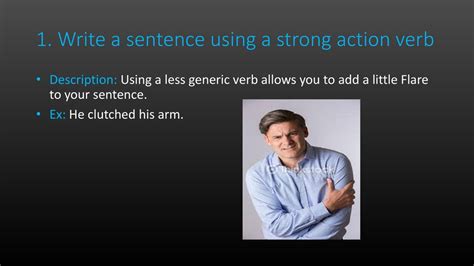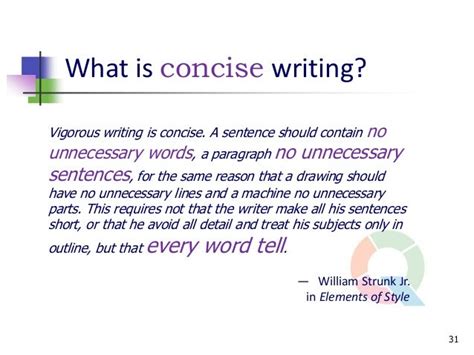Effective communication is the cornerstone of compelling writing, and often, the path to effectiveness lies in saying more with less. Tightening your prose means removing superfluous words and phrases, refining your sentence structure, and ensuring every word serves a purpose. It’s an editing discipline that transforms rambling text into sharp, clear, and impactful messaging, making your arguments stronger and your narrative more engaging.

Eliminate Unnecessary Words and Phrases
The first step in tightening prose is to ruthlessly cut words that add no value. Many writers inadvertently pad their sentences, diluting their message. Look for common culprits:
Redundant Adverbs and Adjectives
Words like “very,” “really,” “incredibly,” or “basically” often weaken rather than strengthen. If a noun or verb is strong enough, it doesn’t need an intensifier. For example, instead of “really essential,” just say “essential.” Similarly, avoid redundant adjective-noun pairs like “future plans” (plans are inherently future) or “personal opinion” (an opinion is always personal).
Superfluous Prepositional Phrases
While prepositions are vital, their overuse can lead to clunky sentences. Often, a single adjective or verb can replace a lengthy phrase. “The reason for the delay” can become “the delayed reason,” or “in a timely manner” can simply be “promptly.”
Empty Phrases and Redundant Pairs
Phrases like “due to the fact that” can almost always be replaced by “because.” “At this point in time” simplifies to “now.” Watch out for redundant pairs such as “basic fundamentals,” “past history,” or “end result.” If one word already conveys the meaning, the other is expendable.

Favor Strong Verbs and Active Voice
Weak verbs, especially forms of “to be” (is, am, are, was, were, be, being, been), can make your writing passive and less dynamic. Replacing them with strong, action-oriented verbs invigorates your prose.
Embrace Active Voice
Active voice clarifies who is performing the action, making sentences more direct and impactful. Compare “The ball was thrown by the boy” (passive) with “The boy threw the ball” (active). The latter is shorter, clearer, and more engaging. While passive voice has its place, particularly when the actor is unknown or unimportant, overuse diminishes energy and precision.
Replace Weak Verbs
Instead of “she made a decision,” write “she decided.” Rather than “he is of the opinion that,” use “he believes.” Strong verbs carry meaning efficiently, reducing the need for additional adverbs and adjectives.

Cut Jargon, Clichés, and Euphemisms
While jargon can be useful within specific expert communities, it alienates general readers. Clichés, on the other hand, are phrases that have lost their impact through overuse, making your writing sound unoriginal and uninspired. Euphemisms can obscure meaning in an attempt to sound polite or avoid directness.
Be Original and Direct
Strive to express ideas in fresh, accessible language. If you find yourself reaching for a well-worn phrase like “think outside the box” or “low-hanging fruit,” challenge yourself to articulate the idea in your own words. Similarly, avoid euphemisms that muddy the waters; sometimes, directness is the clearest path.
Vary Sentence Structure and Length
A string of similarly structured or excessively long sentences can bore your reader and obscure your meaning. Varying your sentence structure keeps readers engaged and helps emphasize key points.
Short Sentences for Impact
Use short, punchy sentences to deliver critical information or create a sense of urgency. They cut through clutter and demand attention.
Combine and Condense
Conversely, look for opportunities to combine short, choppy sentences into a single, more fluid one, or to condense complex ideas. Ensure conjunctions and transition words are used effectively to maintain flow without adding unnecessary bulk.

Be Specific and Direct
Vague language forces readers to guess at your meaning, leading to confusion. Always aim for precision and directness in your writing.
Replace Vague Nouns and Adjectives
Instead of saying “things” or “aspects,” name the specific items. Replace “good” or “bad” with more descriptive adjectives like “effective,” “detrimental,” “insightful,” or “problematic.”
Get to the Point
Avoid lengthy introductions or roundabout explanations. State your main idea clearly and early, then provide the necessary details and support. This direct approach respects your reader’s time and attention.

Conclusion
Tightening prose is not about sacrificing detail or nuance; it’s about presenting information with maximum impact and minimum wasted effort. By systematically eliminating unnecessary words, embracing strong verbs, avoiding clichés, varying sentence structure, and being relentlessly specific, you can transform your writing. This discipline not only enhances clarity and conciseness but also makes your work more authoritative, engaging, and ultimately, more persuasive. Regular practice and a critical eye are your best tools in this ongoing refinement process.




